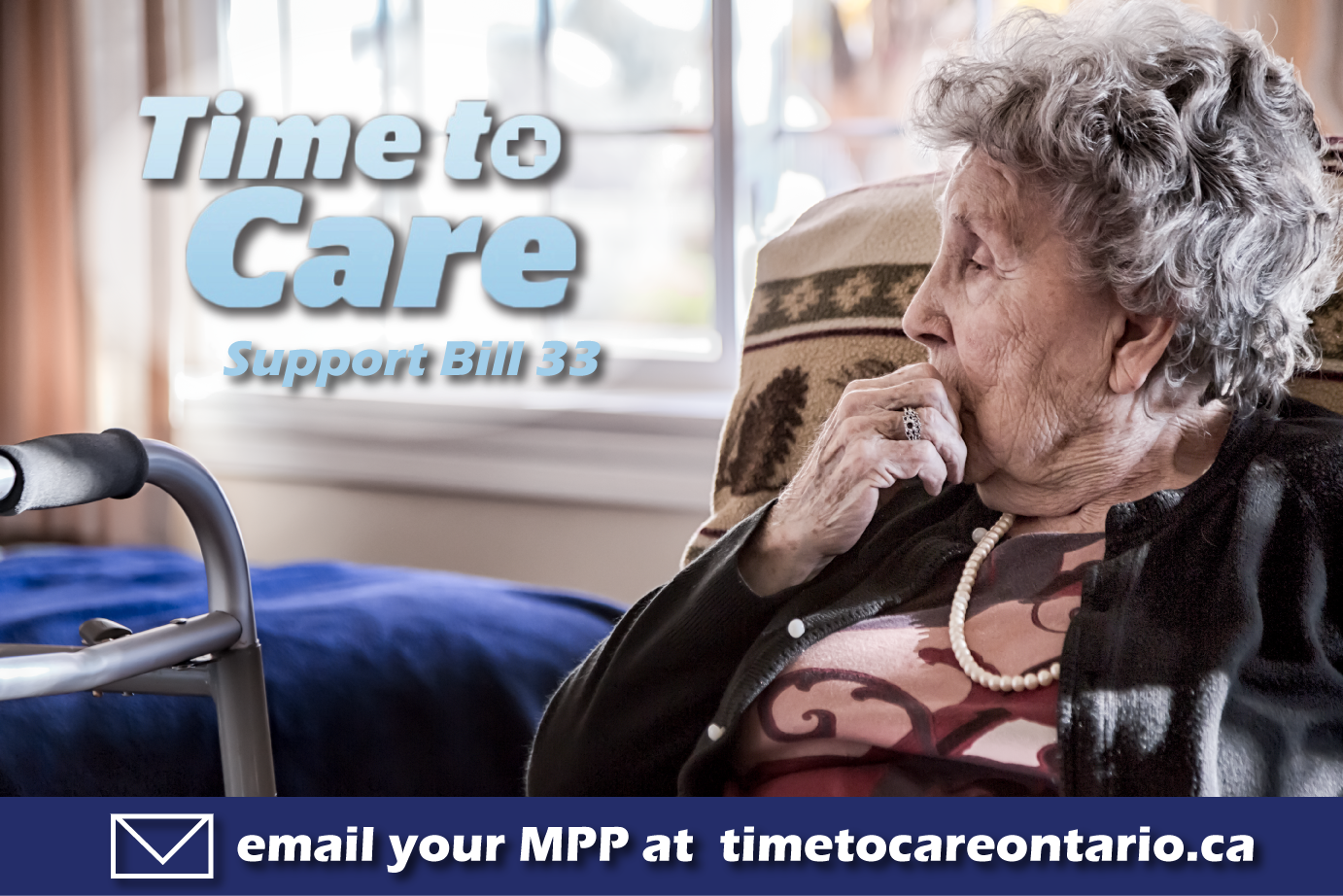TORONTO, ON (November 1, 2017) – Bill 33, the Time to Care Act, is going to second reading Thursday and seniors, their families and care providers are counting on all party support to ensure seniors living in long-term care get the level of care they need.
“This bill was written with one thing in mind, protecting the health and dignity of our seniors living in Ontario’s long-term care homes,” NDP Health Critic France Gélinas said, at a Queen’s Park press conference on the eve of second reading. “Families in this province are concerned about the treatment their loved ones are receiving in long-term care. If we want to protect our most vulnerable citizens, a minimum standard of daily care is a must.”
“Right now, the only guarantees long-term care residents have in Ontario, are that there will be one nurse on site in the home 24 hours-a-day, and that they will get two baths a week. This is not acceptable,” says Candace Rennick, Secretary Treasurer of CUPE Ontario and a former long-term care worker who has been working with the Gélinas to bring Bill 33 forward. “Ontario seniors deserve better protection.”
There are more than 78,000 people living in Ontario long-term care homes. The majority of residents are over 85, almost three quarters have some form of Alzheimer’s or dementia, and the vast majority have mobility issues.
Canada has the lowest care levels among countries with equivalent economies, and Ontario has the lowest in Canada. Bill 33 would legislate a minimum care standard of four hours a day.
“We have five to ten minutes to help a resident with their morning routine. That includes waking, washing, dressing and use of the commode. Imagine if you only had ten minutes for all those activities in the morning. Then imagine you are 87 years old with mobility issues – it’s just not right,” said Andrea Legault, a personal support worker for 19 years. “The hardest thing for me is the residents that we literally force into incontinence because we don’t have enough staff to get to them when they call for help to the bathroom.”
MPPs across the province have received more than 5000 letters of support from family members, for the Time to Care Act. In a recent obituary one family even asked mourners to send letters of support for the bill in lieu of flowers or charitable donations.
“I’ve seen first-hand the results of cuts in our long-term care homes. Incidents of resident on resident violence are increasing as residents with dementia and other cognitive illness are more and more isolated,” said Tom Carrothers, chair of the Advocacy Committee of Family Councils. “The pattern of chronic understaffing in our long-term care homes only exacerbates these problems.”
“It’s not acceptable that our loved ones, the people who spent their lives building our province and caring for our communities, are now being neglected in their final years. We are very grateful to France for bringing this bill forward, but this shouldn’t be a partisan issue,” said Rennick. “We are calling on all parties to step up tomorrow, and vote yes for the Time to Care Act. Seniors across Ontario are counting on them.”
-30-
For more information, contact: Sarah Jordison, CUPE Communications, 416-578-5638 www.cupe.on.ca

